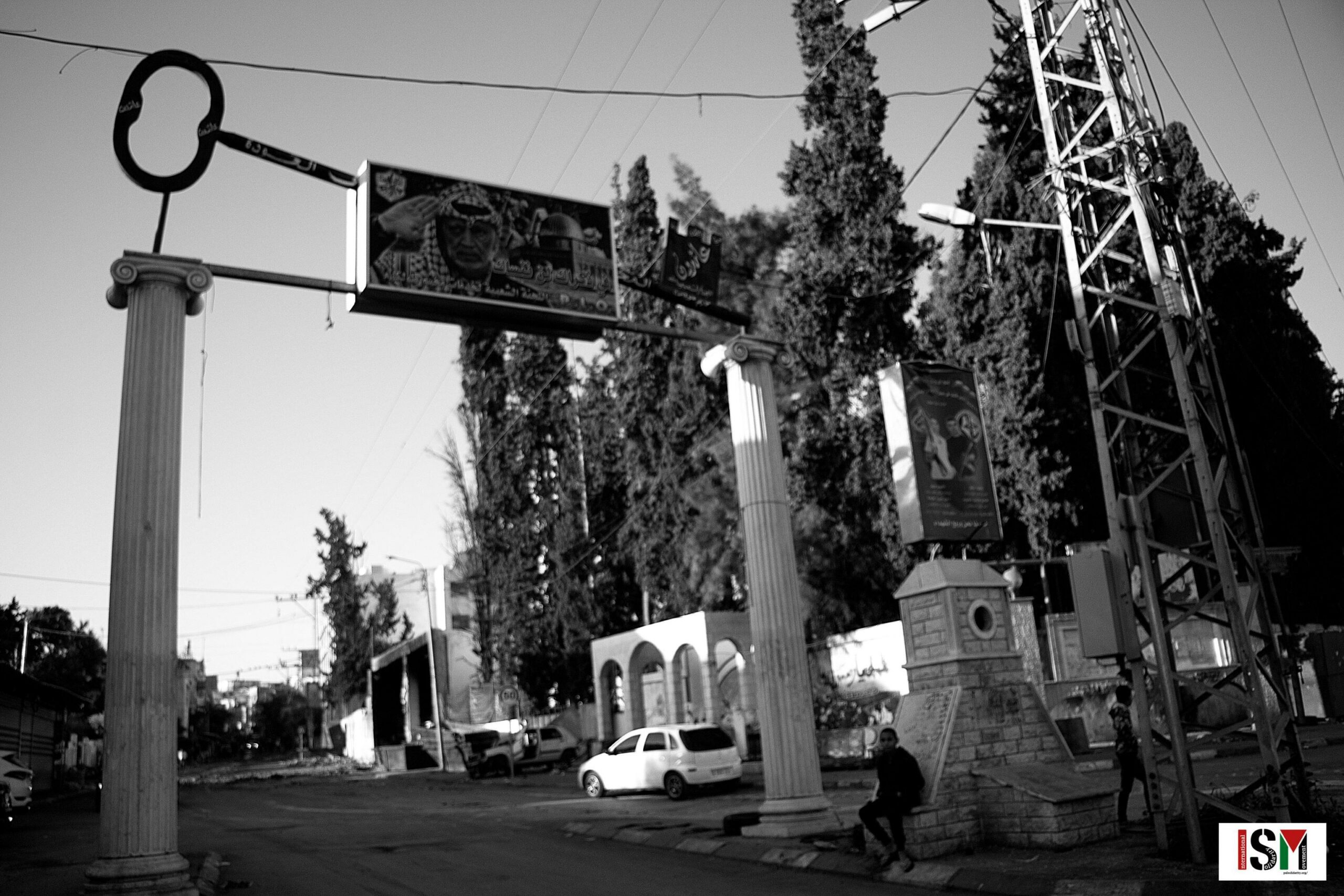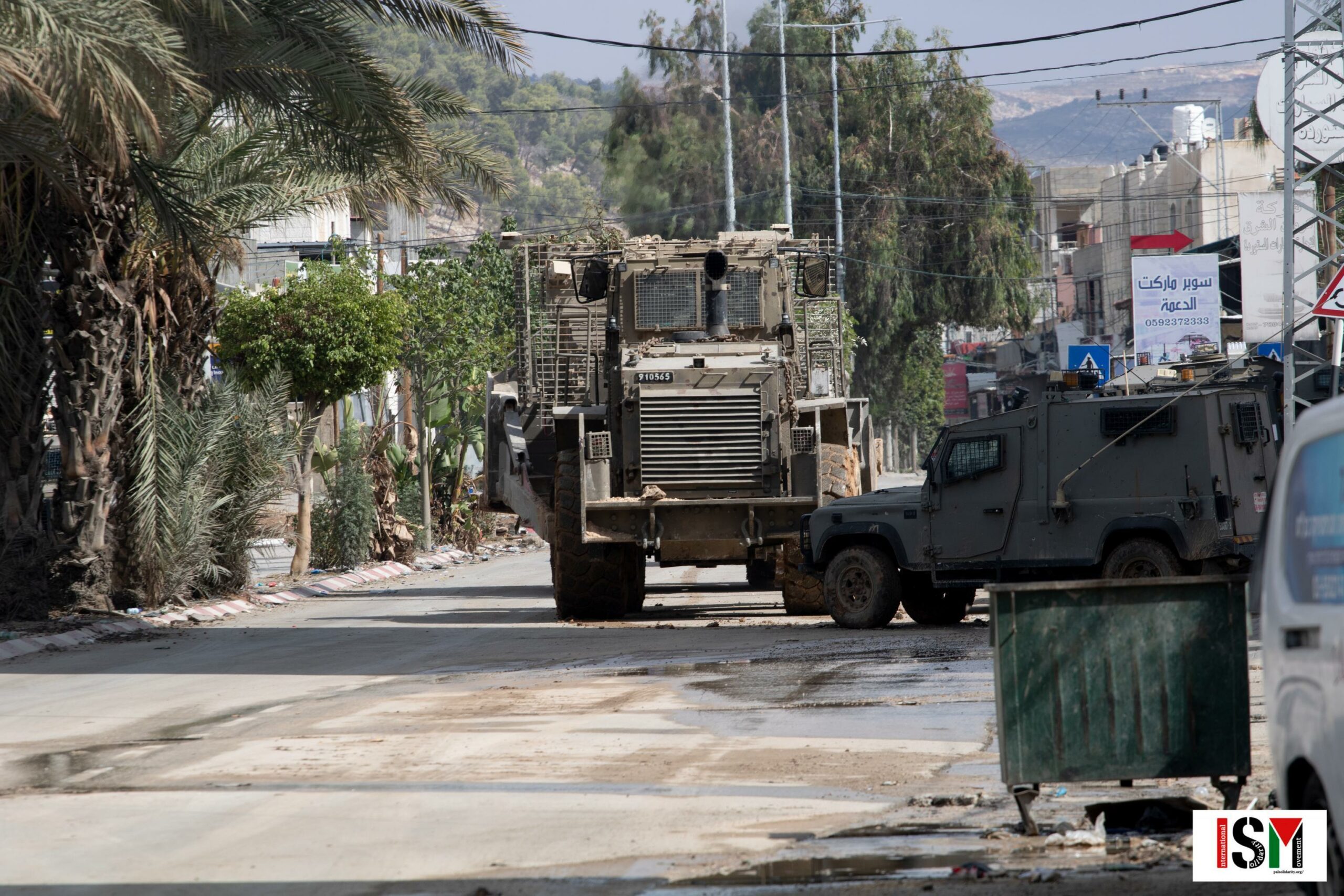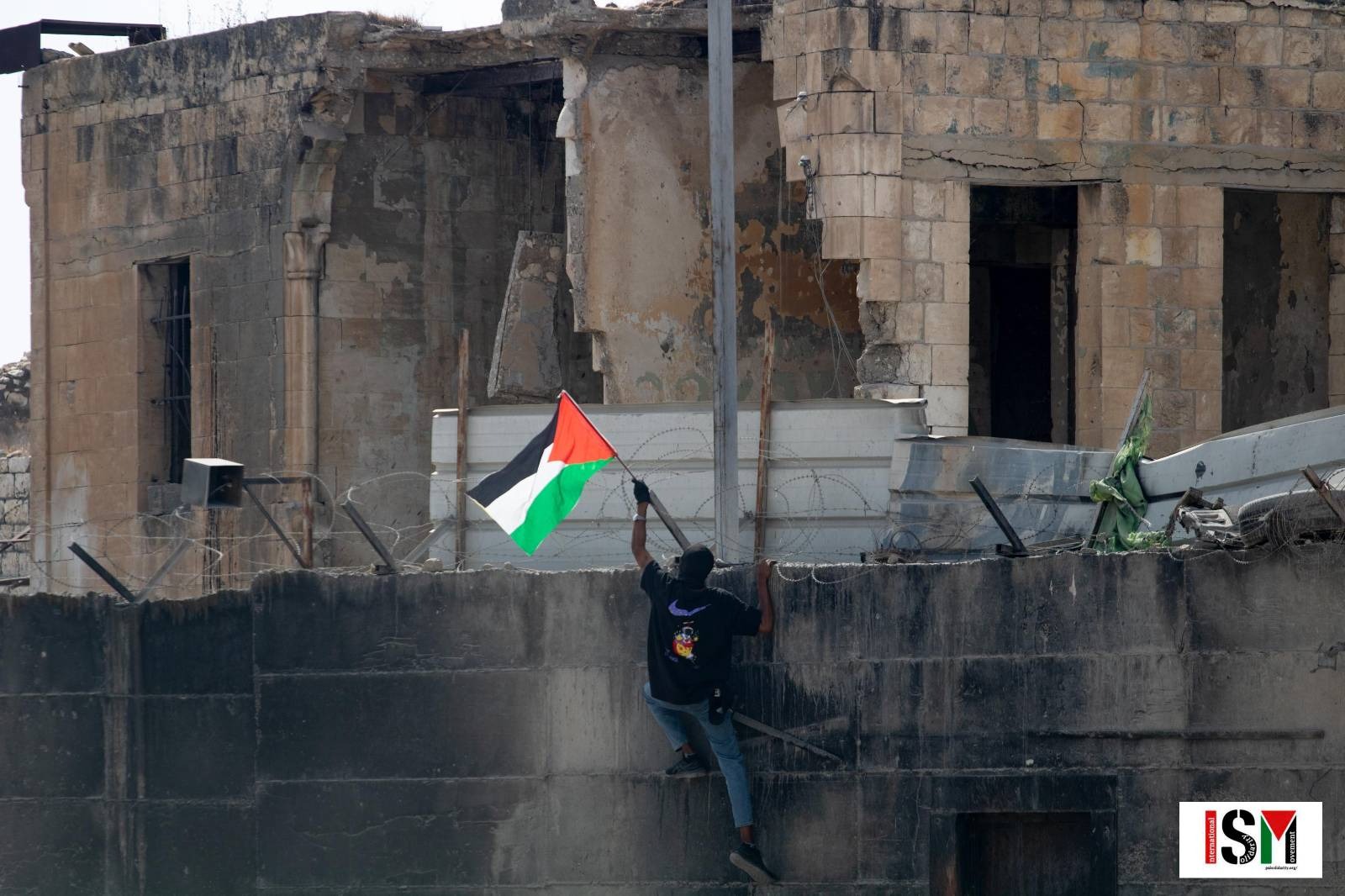Tag: Tulkarem
-
Two attacks in less than 24 hours in Tulkarem Camp
08 November 2023 | International Solidarity Movement | Tulkarm By Diana Khwaelid The Israeli occupation is not only committing crimes in Gaza, it continues to commit crimes in the West Bank. A quick military operation was carried out by Israeli special forces in broad daylight, as they planned an ambush for three young men from…
-
A new massacre in Nour Shams camp, Tulkarm
19 October 2023 | International Solidarity Movement | Tulkarm By Diana Khwaelid The Israeli occupation forces launched a major military assault on the city of Tulkarm, especially on the Nur Shams refugee camp. A curfew was imposed throughout the city for at least 30 continuous hours, and Israeli snipers were deployed in more locations…
-
He was killed while holding the flag of Palestine
14 October, 2023 | International Solidarity Movement | Tulkarm By Diana Khwaelid The martyr Qassim Hakam Qassim, 24, was one of the young people who answered the call to participate in a mass demonstration in solidarity with Gaza in the city of Tulkarm, in the West Bank. The martyr Qassim, who grew up in the…



